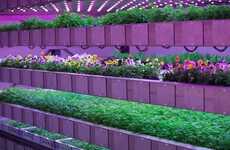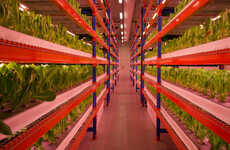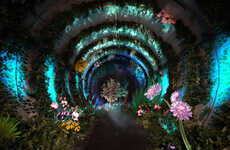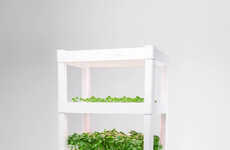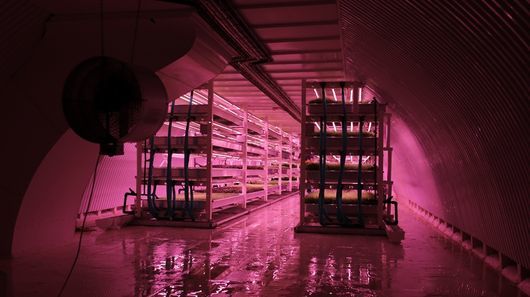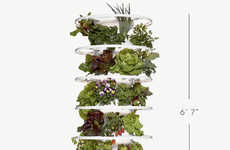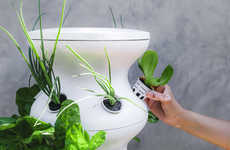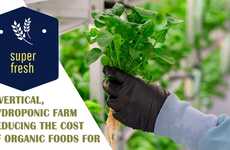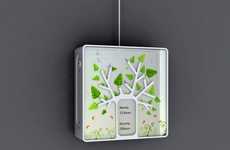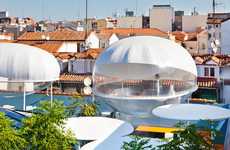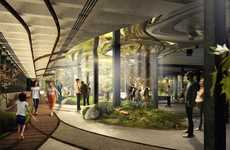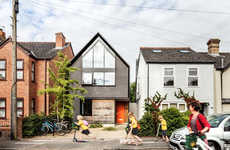
'Growing Underground' is the World's First Urban Underground Farm
Rahul Kalvapalle — July 7, 2015 — Art & Design
References: growing-underground & gizmag
'Growing Underground' is a project with a fairly self-explanatory name -- it centers around growing (and eventually selling) plants and herbs grown 33 meters below the bustling streets of London. Situated in tunnels built during World War 11, the farm is capable of producing quality produce.
The tunnels are located below the Northern Line underground rail link in the Clapham area, and were previously used as bomb shelters for residents. The site being used to grow plants was previously able to accommodate up to 8,000 people during the dark days of the war.
What's great about Growing Underground is that it allows for urban farming year round free of weather and seasonal influence. This project will hopefully inspire other major cities to take advantage of disused and abandoned spaces to grow food.
The tunnels are located below the Northern Line underground rail link in the Clapham area, and were previously used as bomb shelters for residents. The site being used to grow plants was previously able to accommodate up to 8,000 people during the dark days of the war.
What's great about Growing Underground is that it allows for urban farming year round free of weather and seasonal influence. This project will hopefully inspire other major cities to take advantage of disused and abandoned spaces to grow food.
Trend Themes
1. Urban Farming - Disruptive innovation opportunities in utilizing unused spaces in cities for year-round food production.
2. Vertical Farming - Disruptive innovation opportunities in utilizing vertical space for farming, reducing the need for large agricultural land.
3. Sustainable Agriculture - Disruptive innovation opportunities in developing efficient farming methods that minimize environmental impact.
Industry Implications
1. Agriculture - Disruptive innovation opportunities in transforming traditional farming methods to more sustainable and urban-friendly approaches.
2. Real Estate - Disruptive innovation opportunities in repurposing abandoned or unused spaces for urban farming purposes.
3. Food Retail - Disruptive innovation opportunities in sourcing produce directly from urban farms for sale in grocery stores.
1.1
Score
Popularity
Activity
Freshness


